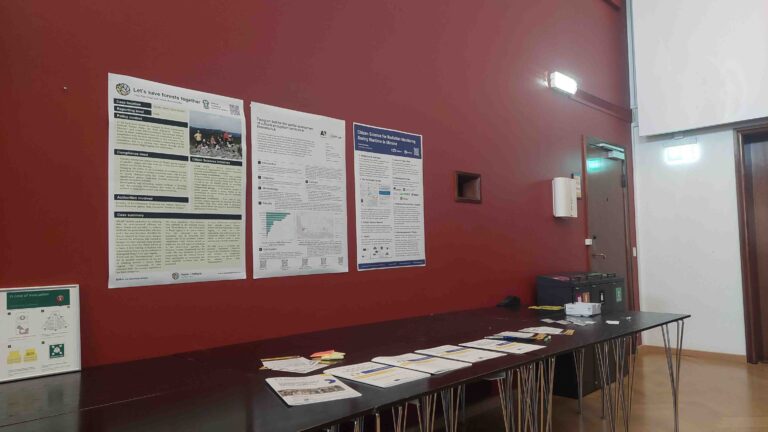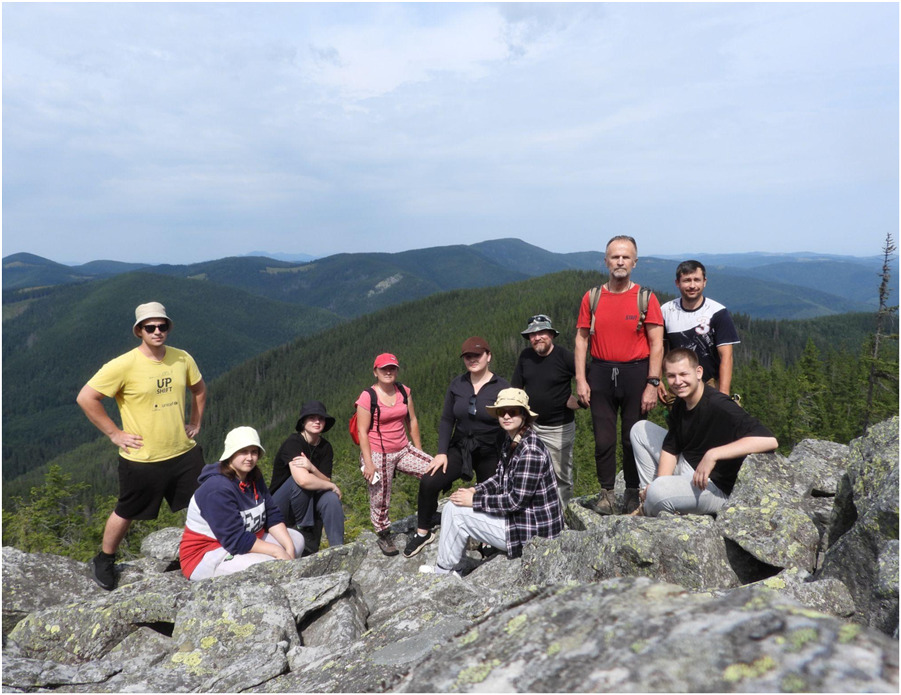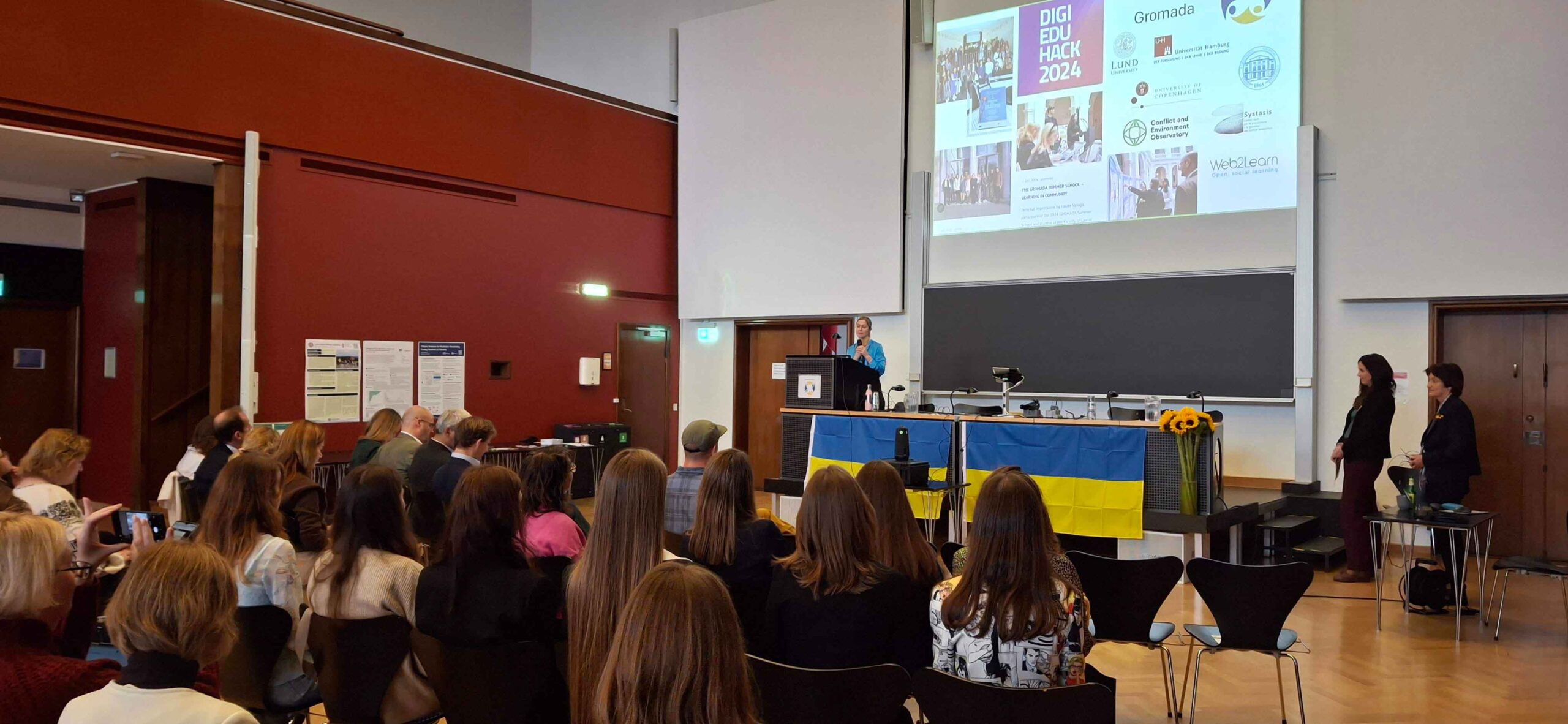One of the invisible consequences of the war in Ukraine is an increase in illegal deforestation and forest degradation. Where official monitoring and satellite imagery cannot reach, citizen participation can be key.
On October 24th , our partners at NECU presented one of the more4nature’s case studies focused on halting illegal deforestation in Ukraine, at the GROMADA Conference 2025. The Conference, dedicated to “Environmental Citizen Science in Conflict Zones for Accountability and Empowerment”, provided a powerful platform to showcase innovative approaches for environmental protection under such challenging conditions and discuss with researchers and innovators working on the same domain.
more4nature was well represented by Oleg Pogrubnyj and Yevhen Bovsunovskyi, researchers from the National Ecological Centre of Ukraine (NECU). They showcased a poster titled “Let’s save forests together”, depicting their work within the more4nature case study they are facilitating on fighting illegal deforestation in Ukraine in the context of war. NECU is exploring how citizen science and technology can help combat illegal logging through the use of satellite imagery, acoustic monitoring, and the SMART mobile system. These tools have the potential to empower local communities, promote transparency, and strengthen accountability in environmental management.
The event, hosted by the GROMADA project, brought together representatives from United Nations Environment Programme (UNEP-WCMC), the Registry of Damage for Ukraine, academics and students from across Europe, and NGOs working on citizen science and education in conflict zones.

Citizens as Deforestation Sentinels in Ukraine
One of the many wounds inflicted by the war resulting from Russia’s invasion of Ukraine in 2022 can be witnessed in its forests. The war is not only exacerbating an already existing trend of forest degradation due to unsustainable management practices but also reinforcing deforestation risk as illegal logging is increasingly difficult to detect and tackle.
This more4nature case study, facilitated by NECU, focuses on halting illegal deforestation in the Kosiv and Verkhovyna regions in Ukraine. Forestry enterprises are often unable to detect illegal logging. This information gap could be filled by integrating satellite image analysis with data from citizen science. In doing so, citizens not only contribute to stopping illegal logging, but also gain a deeper understanding of the importance of forests and their ecosystem services.
Currently, a SMART server has been set up allowing citizen observations to be collected in a mobile app. The methodology is undergoing testing and verification. For that, NECU and the team from the National Nature Park Hutsulshchyna carried out an acoustic experiment on the use of listening devices to detect illegal logging. Acoustic sensors can pick up the specific sounds of chainsaws and logging equipment, operating faster than satellite imagery. In addition, students from Lviv, Kyiv and Poltava were already trained to use the software to distinguish illegal from legal logging.
On May 14-15, a scientific and practical conference “Protected Areas of the Carpathians: Challenges and Prospects for Sustainable Development” was held jointly with the National Nature Park Hutsulshchyna.

GROMADA: Legal and Community Capacity Building for Ukraine’s Environmental Recovery
The GROMADA project , funded by Erasmus+, promotes collaboration among European universities to support the restoration of forest ecosystems in Ukraine, considering the legal dimensions of citizen participation.
The project is analysing barriers and opportunities to empower communities, especially those most affected by the conflict, towards peacebuilding and environmental action emphasizing legal aspects.
For GROMADA, both capacity building and the role of technology are crucial to enable communities, individuals, and universities to act and design new models of crisis resilience based on public participation in environmental monitoring. The GROMADA Conference was one of their actions to increase the capacity of scientists, students, and communities.




